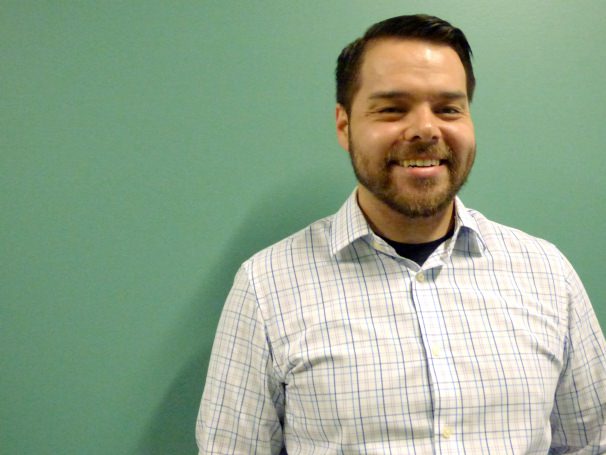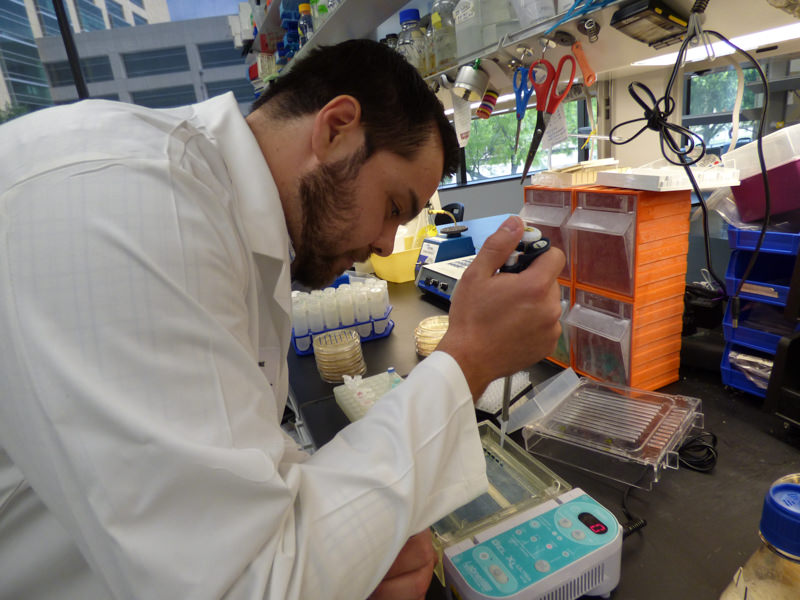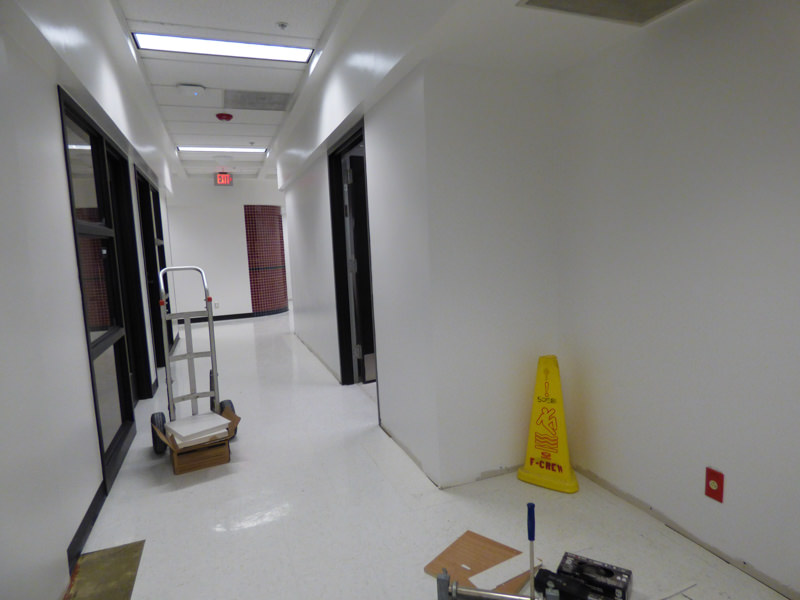Master of Science in Immunology & Infection Opens Doors of Opportunity

Ryan Ruiz is a student in the Master of Science (M.S.) in Immunology & Infection program at UT Health Science Center in San Antonio.
When he’s not in class, he is working full time as a medical laboratory scientist in the Pathology Department at University Hospital, testing for pathogens.
“Because we are such a large hospital in South Texas, we get a lot of interesting cases coming through,” he said.
One of the reasons he is pursuing the Master of Science degree is because he would like to bring more knowledge to work. He expects to gain additional problem-solving skills as he enters the research phase of his M.S. training.
“There is a correlation of what I do in the lab and what we learn in class. I love that they go hand-in-hand,” Ruiz said. “I can look at an organism and identify it, but what do I really know about it? How does it cause disease and what are the diseases it causes? I feel like I’m getting this further background that relates to work that I wouldn’t be able to get being at work.”
Ruiz explained that, although only halfway through the Master of Science program, he’s already noticed the difference the added knowledge has made.
“I feel more confident answering people’s questions because of the background that I’m getting from school,” Ruiz said.
Ruiz is the first student to be admitted into the brand new program. Over 50 applications for this fall’s class have been submitted and many more are coming in daily. The final application deadline is May 15.
Kay Eskew, academic coordinator in the Department of Microbiology & Immunology, explained that there is a huge demand for the program.
“We are filling a need for people in this area,” she said. “I thought that we would get mainly
local people but we have people applying from India, Saudi Arabia, Singapore, and all over the world.”

Dr. Paolo Casali, chairman of the Department of Microbiology & Immunology, explained that the Master of Science in Immunology & Infection program attracts different types of people such as those who are mid-career and looking to get more experience; people who wish to apply for positions in research laboratories; people who wish to apply to medical school and need to improve their academic credentials.
“To apply to medical school from college, the program is a good stepping stone because it provides a formal degree that is marketable,” Dr. Casali said. “Also, if you are trying to get a job at a biotech company or big pharma, having a degree of this kind is the most useful you can have.”
Dr. Keith Krolick, the director of the Master of Science program, stressed that opportunities that are
available to students in the program because of the strong relationship that his department has with the School of Medicine and its clinical research faculty. He said that there are around 45 Master of Science degree programs in the biological sciences at non-health science undergraduate institutions around the state.
“Most are broad general biology programs, with few that focus on immunology/microbiology specialties and do not provide opportunities to investigate clinical problems in laboratories that interface with the biomedical community,” Dr. Krolick said. “Our Master of Science program integrates immunology and infectious disease thereby producing a more well-rounded learning experience.”

Eskew explained that in order to keep up with the demand, the department is adding new classrooms for the Master of Science program.
“We are going to have a full house here and the energy level in this department has gone up dramatically,” Dr. Casali said. “With the renovations in the department, the new faculty, new labs—it’s really exciting.”
